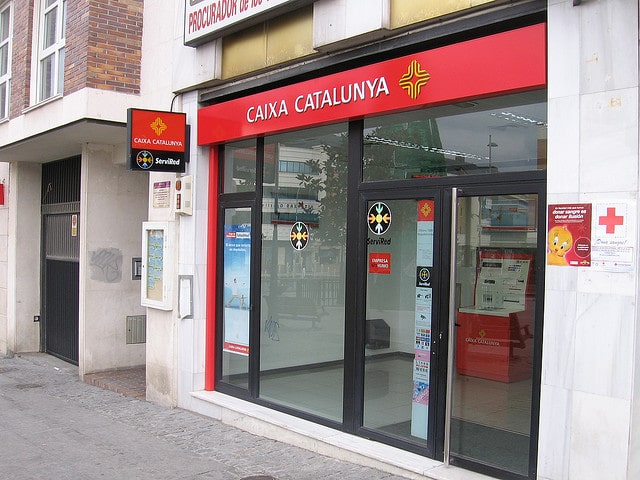The Market Economy Investor Principle also applies to transactions between related companies. A private investor enjoys a margin of discretion in deciding in favour or against an investment. However, despite that margin of discretion, a prudent private investor always carries out an assessment of the potential profitability of the investment before it commits any money. Introduction When a public […]
State Aid Law
Blog
State Aid Uncovered Blog
In Lexxion’s State Aid Uncovered blog, Prof. Phedon Nicolaides publishes weekly critical analyses of recent State aid judgments and decisions. Each post presents the key points of a court judgment or EU Commission decision, places it in the context of similar case law or practice, assesses the underlying reasoning and highlights any inconsistencies or contradictions.
Guest contributions from other State aid experts will also be published on the blog at irregular intervals to complement the content of the blog posts.
State Aid Uncovered ×
21. July 2015 |
State Aid Uncovered
by Phedon Nicolaides
14. July 2015 |
State Aid Uncovered
by Phedon Nicolaides
De minimis aid underpins “off-the-shelf” financial instruments which leverage private investment and at the same time ensure that all aid is passed on to the final beneficiary. Introduction One of the most convenient aid instruments is de minimis aid. It can be used for any purpose [apart from promotion of exports or on condition that domestic products are favoured] […]
7. July 2015 |
State Aid Uncovered
by Phedon Nicolaides
The sale of a public undertaking [privatisation] needs to be preceded by independent valuation and be carried out on the basis of a competitive procedure. Certain guarantees may be provided to prospective buyers, if they could increase the sale price. The break-up of an undertaking and the disposal of the different parts through separate sales should be shown to generate […]
29. June 2015 |
State Aid Uncovered
by Phedon Nicolaides
The standard of proof of whether a measure is selective depends on whether that measure is a scheme or a grant of individual aid. Measures providing for exemption are by definition selective. Measures that impose additional charges for the purpose of maintaining equality between operators are not necessarily selective even if the responsible authorities retain a degree of discretion in […]
22. June 2015 |
State Aid Uncovered
by Phedon Nicolaides
Ex post monitoring will be pursued vigorously by the Commission. Irregularities in the implementation of State aid measures may lead to the opening of the formal investigation procedure. Introduction This article examines Commission decision concerning a UK risk capital scheme entitled Enterprise Capital Funds [SA.15373 and SA.33186]. The decision is the outcome of an investigation that was initiated after […]
15. June 2015 |
State Aid Uncovered
by Phedon Nicolaides
At the end of April, the European Commission announced that seven measures were found not to constitute State aid because they could not be reasonably expected to affect cross-border trade. The finding of no affectation of trade is rare. That seven measures were thought not capable of affecting trade is very exceptional. Perhaps the Commission is trying to signal to […]
8. June 2015 |
State Aid Uncovered
by Phedon Nicolaides
Greater use of the new General Block Exemption Regulation means fewer State aid measures subject to notification and ex ante assessment by the Commission. However, less ex ante control will be followed by more ex post control. Member States should be prepared for wider and more intrusive ex post monitoring. Introduction One of the cornerstones of the State Aid […]
1. June 2015 |
State Aid Uncovered
by Phedon Nicolaides
Injection of public capital in an undertaking conforms with the market economy investor principle when: The public investment is equal and concomitant to private investment. The public investment has economic significance and is not followed by disengagement of private investors. The recipient undertaking is in a healthy financial position. The recipient undertaking compares favourably to its peers. The investment is […]
27. May 2015 |
State Aid Uncovered
by Phedon Nicolaides
Restructuring aid can finance any part of a restructuring plan. Compensatory measures initiated before the granting of restructuring aid can be taken into account as long as they are linked to the restructuring itself. Member States have to comply with the conditions defined in Commission decisions. They cannot justify non-compliance on the grounds of domestic institutional difficulties. Regional authorities that […]
19. May 2015 |
State Aid Uncovered
by Phedon Nicolaides
Even efficient companies will fail the 4th Altmark criterion if their costs are not proven to be comparable to those of a typical and well-equipped undertaking. Public funding of infrastructure is not State aid to users only if access is open to all. Public funding for training to raise social awareness is still State aid if it relieves companies of […]
State Aid Uncovered ×
21. July 2015 |
State Aid Uncovered
by Phedon Nicolaides
The Market Economy Investor Principle also applies to transactions between related companies. A private investor enjoys a margin of discretion in deciding in favour or against an investment. However, despite that margin of discretion, a prudent private investor always carries out an assessment of the potential profitability of the investment before it commits any money. Introduction When a public […]
14. July 2015 |
State Aid Uncovered
by Phedon Nicolaides
De minimis aid underpins “off-the-shelf” financial instruments which leverage private investment and at the same time ensure that all aid is passed on to the final beneficiary. Introduction One of the most convenient aid instruments is de minimis aid. It can be used for any purpose [apart from promotion of exports or on condition that domestic products are favoured] […]
7. July 2015 |
State Aid Uncovered
by Phedon Nicolaides
The sale of a public undertaking [privatisation] needs to be preceded by independent valuation and be carried out on the basis of a competitive procedure. Certain guarantees may be provided to prospective buyers, if they could increase the sale price. The break-up of an undertaking and the disposal of the different parts through separate sales should be shown to generate […]
29. June 2015 |
State Aid Uncovered
by Phedon Nicolaides
The standard of proof of whether a measure is selective depends on whether that measure is a scheme or a grant of individual aid. Measures providing for exemption are by definition selective. Measures that impose additional charges for the purpose of maintaining equality between operators are not necessarily selective even if the responsible authorities retain a degree of discretion in […]
22. June 2015 |
State Aid Uncovered
by Phedon Nicolaides
Ex post monitoring will be pursued vigorously by the Commission. Irregularities in the implementation of State aid measures may lead to the opening of the formal investigation procedure. Introduction This article examines Commission decision concerning a UK risk capital scheme entitled Enterprise Capital Funds [SA.15373 and SA.33186]. The decision is the outcome of an investigation that was initiated after […]
15. June 2015 |
State Aid Uncovered
by Phedon Nicolaides
At the end of April, the European Commission announced that seven measures were found not to constitute State aid because they could not be reasonably expected to affect cross-border trade. The finding of no affectation of trade is rare. That seven measures were thought not capable of affecting trade is very exceptional. Perhaps the Commission is trying to signal to […]
8. June 2015 |
State Aid Uncovered
by Phedon Nicolaides
Greater use of the new General Block Exemption Regulation means fewer State aid measures subject to notification and ex ante assessment by the Commission. However, less ex ante control will be followed by more ex post control. Member States should be prepared for wider and more intrusive ex post monitoring. Introduction One of the cornerstones of the State Aid […]
1. June 2015 |
State Aid Uncovered
by Phedon Nicolaides
Injection of public capital in an undertaking conforms with the market economy investor principle when: The public investment is equal and concomitant to private investment. The public investment has economic significance and is not followed by disengagement of private investors. The recipient undertaking is in a healthy financial position. The recipient undertaking compares favourably to its peers. The investment is […]
27. May 2015 |
State Aid Uncovered
by Phedon Nicolaides
Restructuring aid can finance any part of a restructuring plan. Compensatory measures initiated before the granting of restructuring aid can be taken into account as long as they are linked to the restructuring itself. Member States have to comply with the conditions defined in Commission decisions. They cannot justify non-compliance on the grounds of domestic institutional difficulties. Regional authorities that […]
19. May 2015 |
State Aid Uncovered
by Phedon Nicolaides
Even efficient companies will fail the 4th Altmark criterion if their costs are not proven to be comparable to those of a typical and well-equipped undertaking. Public funding of infrastructure is not State aid to users only if access is open to all. Public funding for training to raise social awareness is still State aid if it relieves companies of […]
State Aid Uncovered ×
21. July 2015 |
State Aid Uncovered
by Phedon Nicolaides
The Market Economy Investor Principle also applies to transactions between related companies. A private investor enjoys a margin of discretion in deciding in favour or against an investment. However, despite that margin of discretion, a prudent private investor always carries out an assessment of the potential profitability of the investment before it commits any money. Introduction When a public […]
14. July 2015 |
State Aid Uncovered
by Phedon Nicolaides
De minimis aid underpins “off-the-shelf” financial instruments which leverage private investment and at the same time ensure that all aid is passed on to the final beneficiary. Introduction One of the most convenient aid instruments is de minimis aid. It can be used for any purpose [apart from promotion of exports or on condition that domestic products are favoured] […]
7. July 2015 |
State Aid Uncovered
by Phedon Nicolaides
The sale of a public undertaking [privatisation] needs to be preceded by independent valuation and be carried out on the basis of a competitive procedure. Certain guarantees may be provided to prospective buyers, if they could increase the sale price. The break-up of an undertaking and the disposal of the different parts through separate sales should be shown to generate […]
29. June 2015 |
State Aid Uncovered
by Phedon Nicolaides
The standard of proof of whether a measure is selective depends on whether that measure is a scheme or a grant of individual aid. Measures providing for exemption are by definition selective. Measures that impose additional charges for the purpose of maintaining equality between operators are not necessarily selective even if the responsible authorities retain a degree of discretion in […]
22. June 2015 |
State Aid Uncovered
by Phedon Nicolaides
Ex post monitoring will be pursued vigorously by the Commission. Irregularities in the implementation of State aid measures may lead to the opening of the formal investigation procedure. Introduction This article examines Commission decision concerning a UK risk capital scheme entitled Enterprise Capital Funds [SA.15373 and SA.33186]. The decision is the outcome of an investigation that was initiated after […]
15. June 2015 |
State Aid Uncovered
by Phedon Nicolaides
At the end of April, the European Commission announced that seven measures were found not to constitute State aid because they could not be reasonably expected to affect cross-border trade. The finding of no affectation of trade is rare. That seven measures were thought not capable of affecting trade is very exceptional. Perhaps the Commission is trying to signal to […]
8. June 2015 |
State Aid Uncovered
by Phedon Nicolaides
Greater use of the new General Block Exemption Regulation means fewer State aid measures subject to notification and ex ante assessment by the Commission. However, less ex ante control will be followed by more ex post control. Member States should be prepared for wider and more intrusive ex post monitoring. Introduction One of the cornerstones of the State Aid […]
1. June 2015 |
State Aid Uncovered
by Phedon Nicolaides
Injection of public capital in an undertaking conforms with the market economy investor principle when: The public investment is equal and concomitant to private investment. The public investment has economic significance and is not followed by disengagement of private investors. The recipient undertaking is in a healthy financial position. The recipient undertaking compares favourably to its peers. The investment is […]
27. May 2015 |
State Aid Uncovered
by Phedon Nicolaides
Restructuring aid can finance any part of a restructuring plan. Compensatory measures initiated before the granting of restructuring aid can be taken into account as long as they are linked to the restructuring itself. Member States have to comply with the conditions defined in Commission decisions. They cannot justify non-compliance on the grounds of domestic institutional difficulties. Regional authorities that […]
19. May 2015 |
State Aid Uncovered
by Phedon Nicolaides
Even efficient companies will fail the 4th Altmark criterion if their costs are not proven to be comparable to those of a typical and well-equipped undertaking. Public funding of infrastructure is not State aid to users only if access is open to all. Public funding for training to raise social awareness is still State aid if it relieves companies of […]












